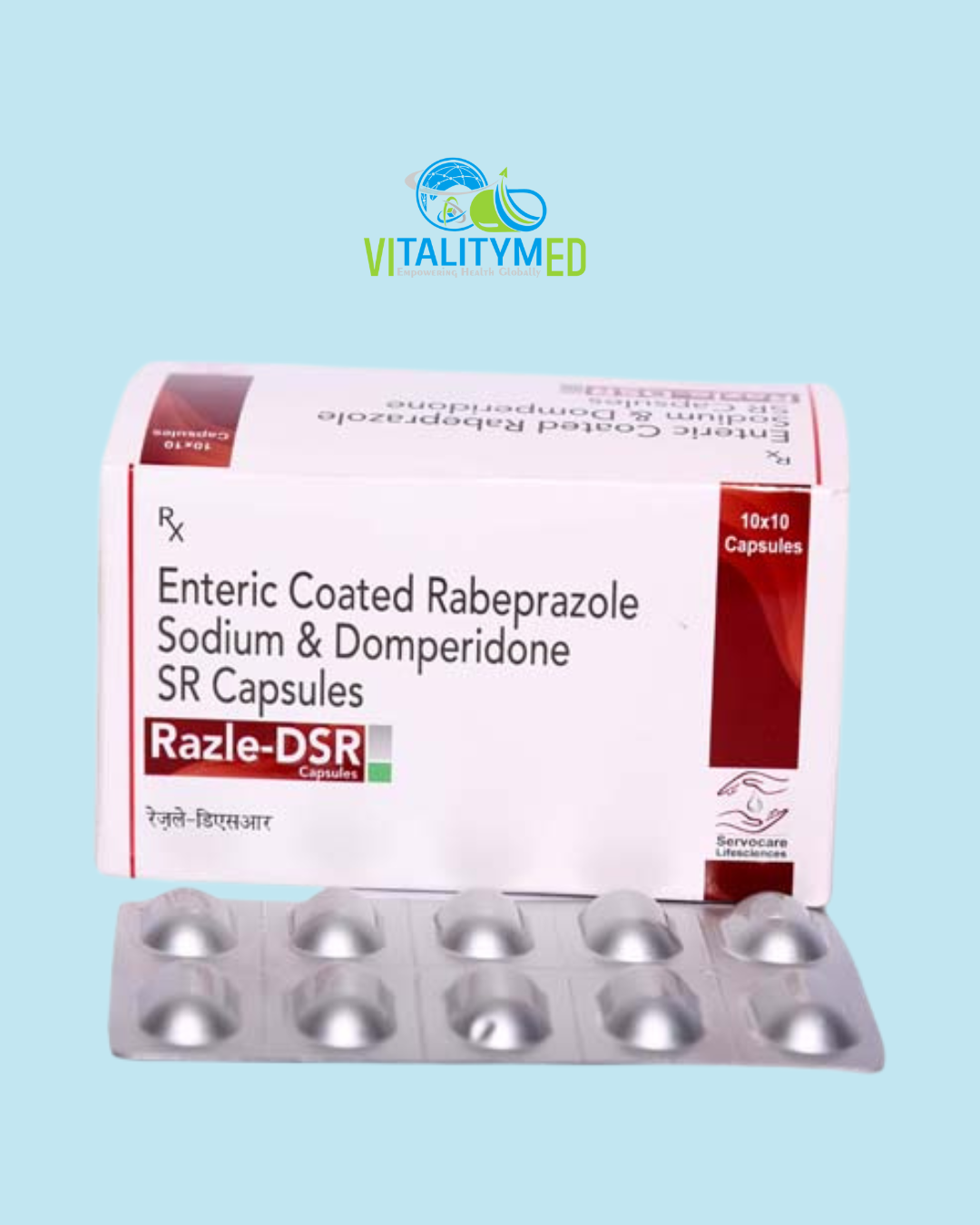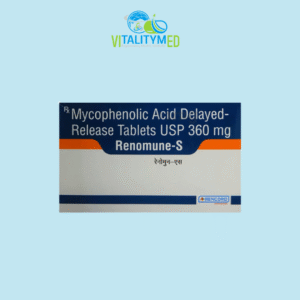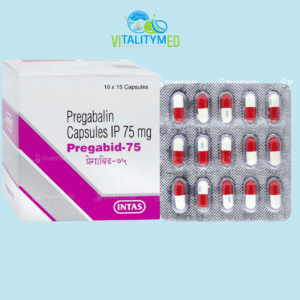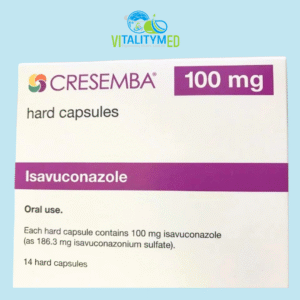Razle DSR is a combination medicine that contains rabeprazole and domperidone. It is widely used to treat various gastrointestinal disorders, particularly those related to excess stomach acid and delayed gastric emptying. This dual-action formulation provides both symptom relief and long-term control for conditions like acid reflux, gastritis, indigestion, and nausea.
Mechanism of Action
Razle DSR works through two complementary mechanisms:
-
Rabeprazole is a proton pump inhibitor (PPI). It blocks the final step in the production of stomach acid by inhibiting the hydrogen-potassium ATPase enzyme in the stomach lining. This reduces acid levels, allowing the stomach and esophagus to heal and preventing further damage.
-
Domperidone is a dopamine D2 receptor antagonist. It enhances gastrointestinal motility by increasing the movement of food through the stomach and intestines. It also prevents nausea and vomiting by acting on the chemoreceptor trigger zone in the brain.
Uses
Razle DSR is used to manage:-
Gastroesophageal reflux disease (GERD)
-
Non-ulcer dyspepsia (indigestion without ulcers)
-
Gastritis
-
Heartburn and acid regurgitation
-
Nausea and vomiting caused by delayed gastric emptying
-
Conditions where dual therapy of acid control and prokinetic effect is beneficial
Adverse Effects
Razle DSR is generally well tolerated, but side effects may occur in some individuals.Common side effects include:
-
Headache
-
Dizziness
-
Dry mouth
-
Diarrhea or constipation
-
Mild abdominal discomfort
Rabeprazole-related effects may include:
-
Low magnesium levels with long-term use
-
Vitamin B12 deficiency over time
-
Increased risk of bone fractures if used for prolonged periods
Domperidone-related effects may include:
-
Breast tenderness or milk secretion in rare cases due to hormonal effects
-
Irregular menstrual periods
-
Increased risk of heart rhythm disturbances, especially in elderly patients or those with heart conditions
-
-
-






